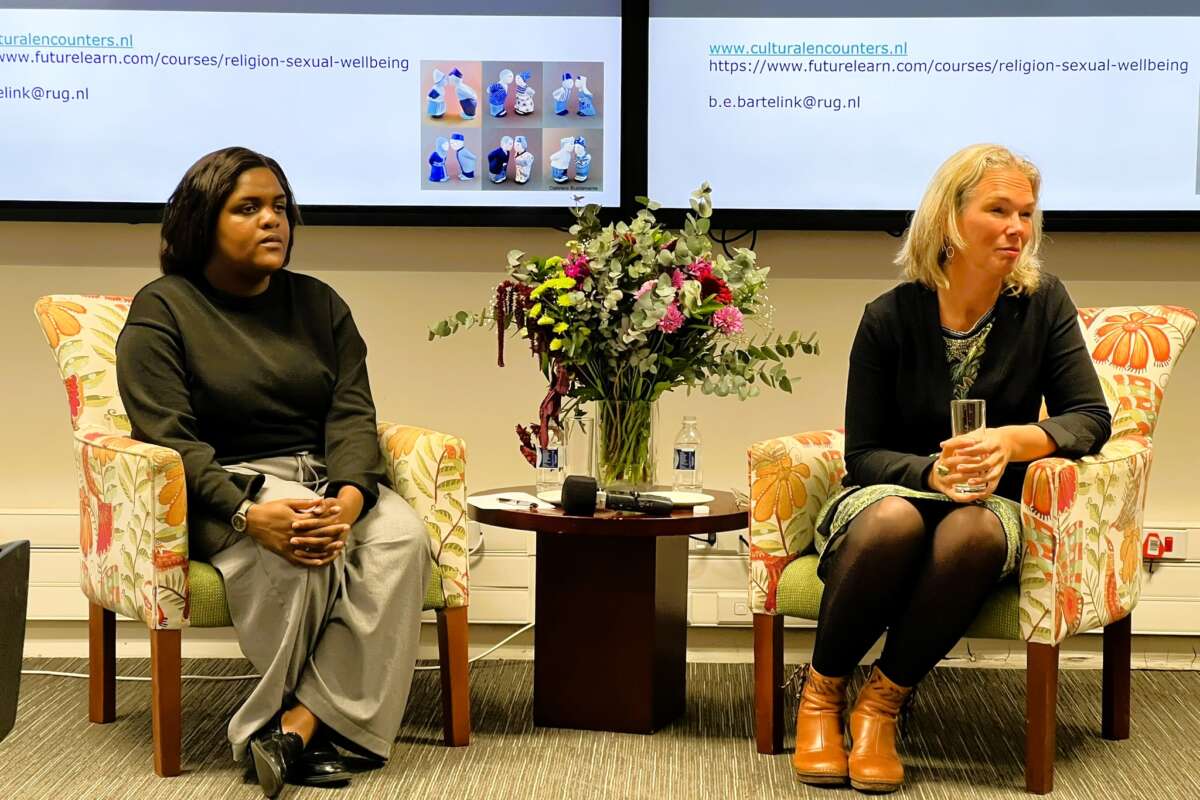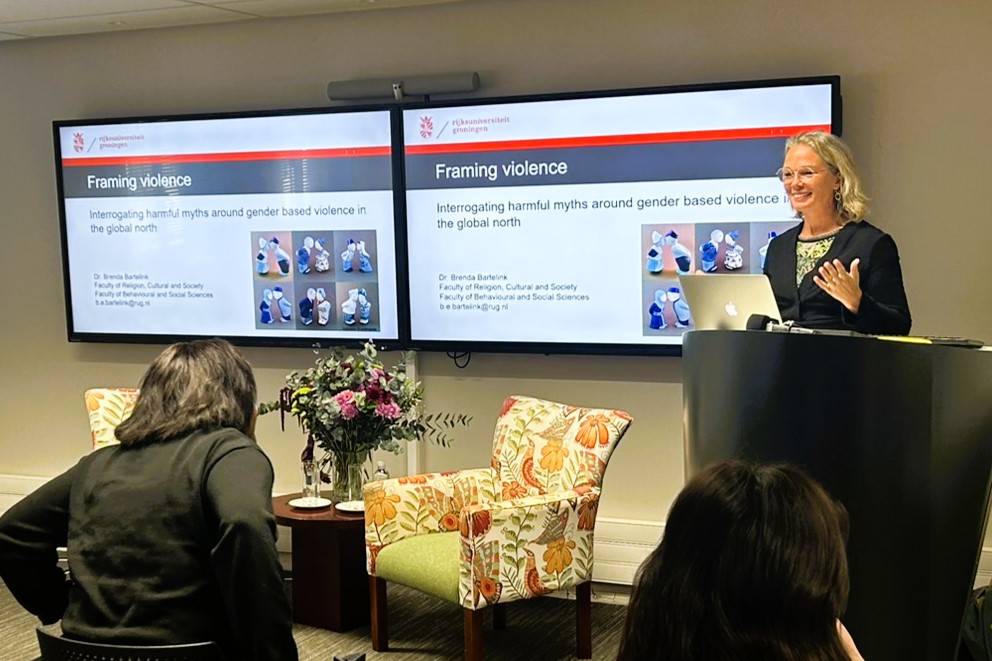In a provocative lecture that forms part of AVReQ’s Gender Dialogue Series, Dr Brenda Bartelink, a revered anthropologist of religion, delivered an insightful presentation titled Framing Violence: Challenging Harmful Myths Around Gender-Based Violence in the Global North. The event was facilitated by Dr Anell Daries and sparked critical conversations around deeply ingrained narratives that perpetuate misconceptions about gender-based violence (GBV) in Europe.
Dr Bartelink’s research explores the complex intersections of gender, religion, and secularity, with a specific focus on how violence is legitimized by patriarchal power structures. In her lecture, she highlighted how GBV is a global issue, disproportionately impacting women and girls in both the global south and north. Yet, she argued, in the global north, particularly in countries like the Netherlands, GBV is often framed as an issue affecting women from the global south, reinforcing harmful colonialist and nationalist stereotypes.
Her presentation illuminated how these outdated narratives depict women in the global south as victims of patriarchal religions and cultures, while secular Europe is imagined as a bastion of gender equality and sexual tolerance. Dr Bartelink challenged these views, demonstrating how such myths not only obscure the realities of violence affecting all women but also reinforce racial and cultural divides. Throughout the lecture, Dr Daries adeptly facilitated a conversation that bridged Dr Bartelink’s academic research with contemporary societal issues, encouraging attendees to reflect on how these myths contribute to policy decisions and public perceptions around GBV.
In addition to her role as a researcher, Dr Bartelink is currently documenting the experiences of refugee parents with family reunification. She brings her expertise as an assistant professor at the Faculties of Social and Behavioural Sciences, and Religion, Culture, and Society, where she teaches courses on Religion, Gender, and Sexual Nationalism, Family Pedagogy, and Postcolonial Citizenship and Education. Her work is characterized by qualitative research methods, with a strong focus on ethnographic and participatory approaches, including creative, art-based methodologies.
The event was a crucial part of AVReQ’s ongoing commitment to addressing gender and power dynamics in both local and global contexts, and it left the audience with much to consider about the pervasive impact of these harmful myths in the fight against gender-based violence.

